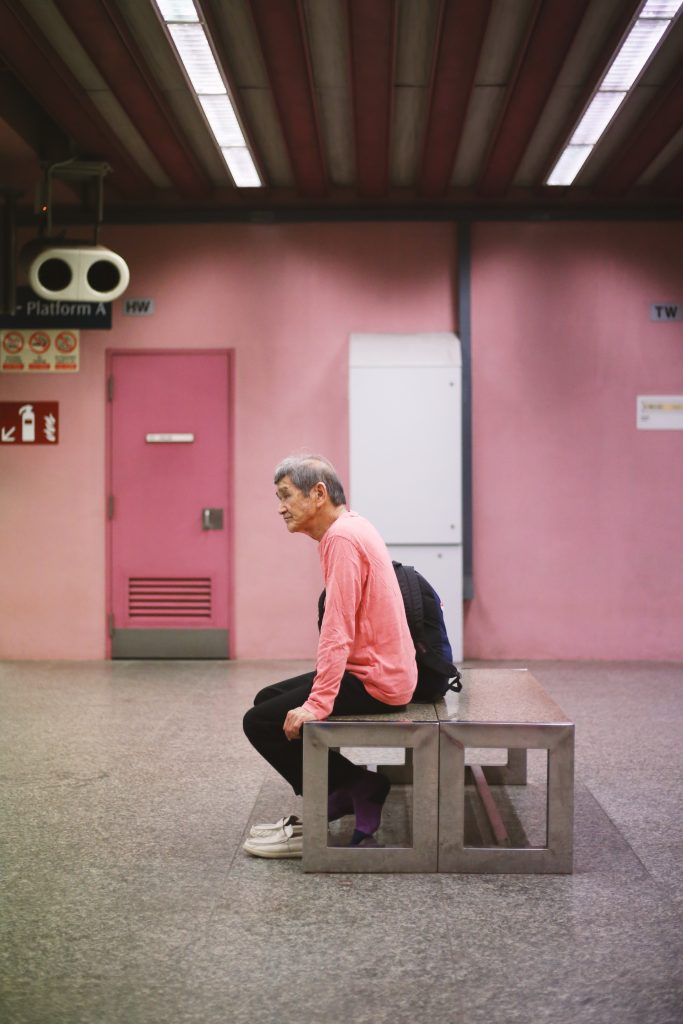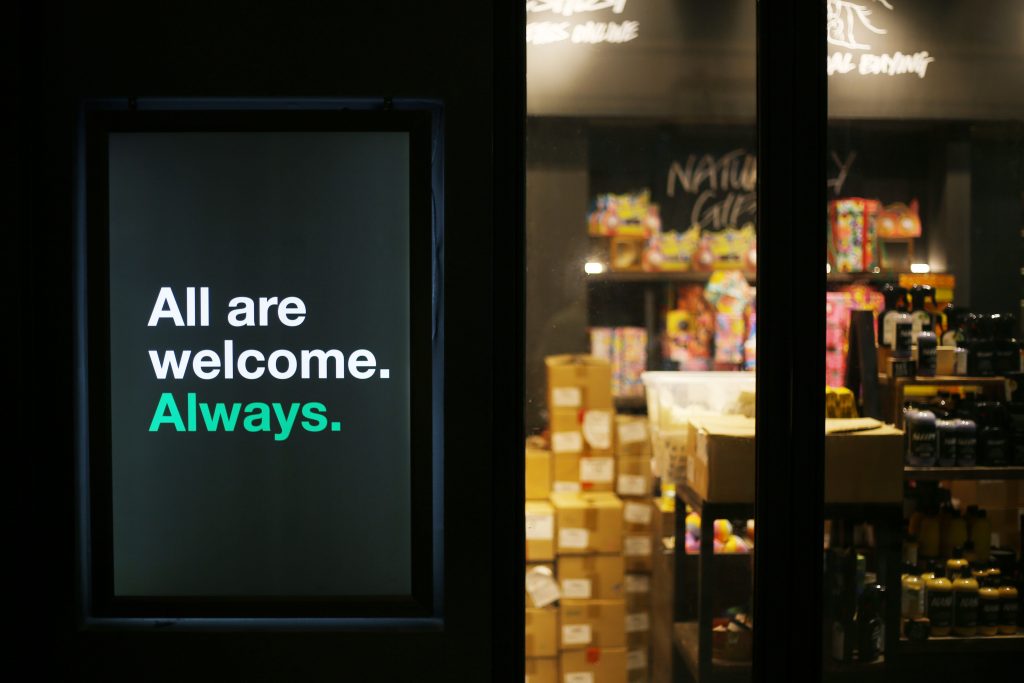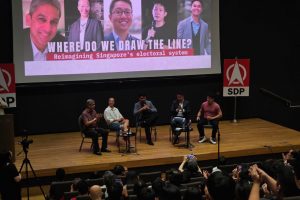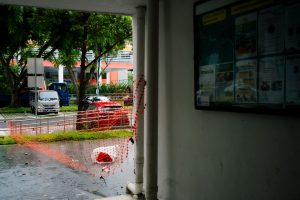This is a series of voter profiles by RICE where we speak to Singapore’s minority communities and find out the issues that matter to them.
This is why, I think, the group of young, LGBTQ Singaporeans whom I talked to take voting very seriously and responsibly. Broadly speaking, their political maturity is marked by three qualities: a broad perspective, a willingness to educate themselves, and a rejection of partisan politics.

All of them, however, were more circumspect and moderate than I had anticipated. Their concerns were not limited to the single issue of LGBTQ rights. Instead, they shared a broader, longer term perspective on what is good for society as a whole.
In fact, some were even willing to support parties that do not make their stand on LGBTQ issues clear, as long as they were committed to social justice.
Christabel Francis, a 21-year-old who identifies as bisexual and “doesn’t really fuss about [their] gender identity”, said, somewhat resignedly, “Finding a political party that will fight for the LGBTQ community isn’t a priority. It would be nice, and I’d love to see gay marriage legalised someday, but as long as the party isn’t outright spewing hateful rhetoric then I’ll look at the bigger picture.”
To Chris (as they prefer to go by), it is more important that parties stand for all communities, “like racial minorities, those in lower financial brackets, or foreign workers.” At the crux of it is their concern over how Singapore society seems to have adopted “an Us versus Them mentality” that is, in turn, shaping public policy.
The parties who are campaigning for equality that cuts across all segments of society, then, “are the parties [they] have the most hope for, because they are listening, and capable of learning.”
Andrea Razali, a 30-year-old transgender woman, echoed Chris’s views.
“As a Singaporean citizen,” she said, “I cannot pick a party to support based on their commitment level to elevating the LGBTQ community alone.
“The party I will pick to support would be one which will support and contest for equal rights and representation of all communities.
At the end of all of it, we are one nation, one Singapore.
Chris, for instance, took a while to get back back to me because they were busy reading up on the elections: “Hi, sorry! I’ve been educating myself over the past few days.”
Indeed, when asked about their thoughts on the various political parties, Chris did not fall back on fuzzy emotions, but grounded their response on a rational analysis of each party’s policies: “[PSP’s] 0% GST on basic necessities and earlier CPF access can really help people struggling with poverty, especially in a world where the rich get richer.”
As if pre-empting any surprise at their detailed knowledge of these proposals, Chris explained, “I’ve been reading over the manifestos for all the parties.”
And when they are unfamiliar with the topic—despite their considerable research—they are not afraid to admit it. Chris declined answering a question on how Singapore’s elections have evolved because they “don’t know enough to comfortably answer”.
Likewise, Ames Winn, a 22-year-old straight transgender man, warned me that his opinions are “non-expertized and non-professional”, even though he “keep[s] an eye on all parties’ views”.
He also freely confessed that he “cannot say much about the outgoing government because [he doesn’t] have the depth of knowledge on the retiring ministers and members of party”.
Lobbing hackneyed accusations at the PAP is child’s play; it’s almost entrenched in online political discourses. For someone from a demographic constantly disenfranchised by the party, these attacks should have been even easier to make.
And yet, despite Ames’s unhappiness at the government’s mishandling of Section 377A (“It is so hard to even get the government to discuss and address criminalization of gay sex,” Ames sighs), he refrained from criticising them.
None of them, in other words, had the desire to delve into the sort of “gutter politics” that some politicians may choose to employ. Instead, they chose to educate themselves and rely on facts to back up their views.

In hindsight, perhaps I needn’t have been. Personality politics, after all, take a backseat when critical thinking comes into play. Granted, not all personality politics are sustained by an aura of mythical, oppressive power, or thrive on the aesthetically and superficially pleasing. Jamus Lim, for instance, seems to magically combine down-to-earth charm with economic rigour. Still, the LGBTQ Singaporeans I spoke to devoted their energies to digesting manifestos, not devouring fancams; they stan policies, not politicians.
Accordingly, none of them are vehement or stubborn supporters of any specific political party. On the flipside, neither are they one-dimensional critics of any. In fact, despite all of them expressing grievances over the PAP’s discriminatory treatment of LGBTQ people, they acknowledged that there were aspects in which the PAP had done well.
Ames, for instance, appreciated that PAP MPs are not stubbornly clinging on to power, but “are willing to pass the baton on to brighter, more relevant and capable candidates”, as he put it.
Chris, on the other hand, thought that the PAP government has managed to engineer social stability, which in turn cultivated trust in the government—without which the Covid-19 pandemic could not have been much managed as efficiently.
Rather extraordinarily (and happily), Andrea even had laudatory things to say about the PAP’s policies on LGBTQ people:
“Being part of the LGBTQIA+ community, and as a transgender woman, I am allowed to change my gender status on all my legal documents, which is a huge step forward, in comparison to a lot of other countries in the world. This shows that the Singaporean government is making an effort to be inclusive.”

Admittedly, a small sample size of three does not prove anything about, or represent, the larger LGBTQ community. LGBTQ Singaporeans are as diverse a group as any.
However, I think the likelihood of LGBTQ Singaporeans who adopt mindsets as demonstrated by Ames, Andrea, and Chris, is much higher than among the average population, who may have their needs represented in parliament without any prompting.
People in this minority community constantly face discrimination in Singapore (despite Ong Ye Kung ignorantly claiming otherwise). Thus, they have to pick up the proverbial gauntlet themselves and fight for their rights, a process that entails education, difficult conversations, and expanding their perspectives. This political activism is ingrained in their identity and existence.
If the rest of the electorate has the political maturity of LGBTQ Singaporeans, then Singapore society and politics will be in good hands. Heck, with such political sophistication, I’d wager that they would even make good members of parliament.
Are you an LGBTQ Singaporean? Let us know your thoughts on the upcoming election at community@ricemedia.co.






